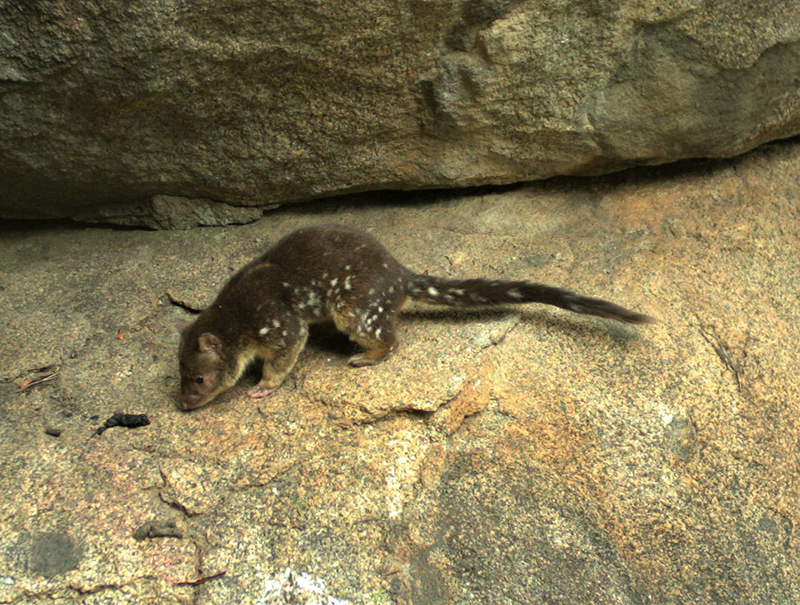
Monitoring reveals quoll survival secrets
4 Oct 2022

Researchers have been monitoring and filming latrine sites to research a colony of spotted-tailed quolls, which has thrived in the dry, rain-shadow eucalypt woodlands and cypress pine forests of the Lower Snowy River.
NSW Department of Primary Industries (DPI) senior research scientist, Andrew Claridge said the quoll population, which he has been tracking for the last 20 years, is an outlier.
“This vulnerable species is more commonly associated with productive landscapes – rainforest and tall, wet and damp eucalypt forest,” Dr Claridge said.
“Since 2002 we’ve been impressed by their resilience and survival in what is considered a harsh environment for the species, and recently we revisited the area to see if they were still thriving.”
The ongoing monitoring program, which is a partnership between DPI and NSW National Parks and Wildlife Service, relies on systematic camera trapping at the latrine sites and adjacent woodland habitat, and targeted searches for quoll scats at the sites.
Wildlife cameras have provided a literal window into the quolls’ lives, including identification of individual quolls and a measure of their persistence in the local breeding population.
Dr Claridge said positive evidence has been found at the latrine sites.
“Spotted-tailed quolls use latrines as focal locations where they leave messages, in the form of scats or urine, to communicate with other quolls,” he said.
“Tell-tale signs of quolls breeding can be found in their use of latrine sites, where a resident adult female will solicit multiple male mates,” Dr Claridge said.
“Peak activity at these latrines occurs between May and July. Breeding is in the winter, with adult females giving birth to up to six young in early July.”
Quoll numbers dropped by around one-third following the fires. Within 18 months, however, quoll numbers were back to pre-fire levels and they haven’t looked back since.
Media contact: 02 6391 3686

